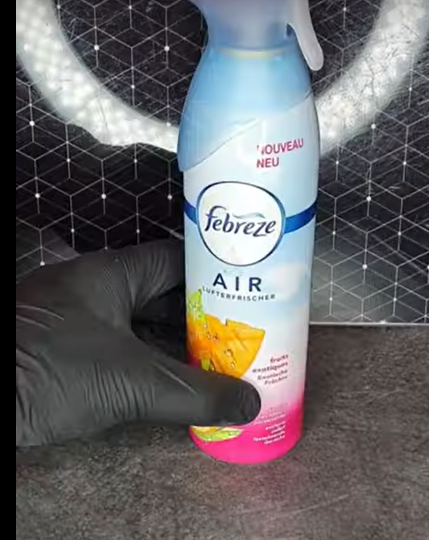You have probably heard of all sorts of remedies and products that claim to repel mice, including one unexpected item: Febreze.
Yes, that air freshener spray that promises to eliminate odours and freshen up your home might just be the solution to your mouse problem. Or is it?
In this article, we will explore the question of whether Febreze actually repels mice or if it’s just an urban myth. Let’s get right into it.
Contents
Does Febreze Repel Mice?
To begin with, Febreze is widely used and adored for its ability to neutralize unpleasant odors in homes, cars, and workplaces.
Its powerful smell certainly alters the environment and can lead to the question: Can it also repel unwanted creatures such as mice?

It’s a reasonable query, given that rodents, including mice, have a very strong sense of smell.
In fact, a mouse’s olfactory system, or sense of smell, is substantially more advanced than that of humans. They rely heavily on their sense of smell for navigation, finding food, and avoiding predators.
So, the idea of a strong-smelling substance like Febreze acting as a deterrent isn’t completely outlandish.
However, it’s important to note that Febreze is not specifically designed or marketed as a rodent repellent.
While the scent might be initially off-putting to a mouse due to its potency, there isn’t sufficient evidence to suggest that Febreze can effectively drive mice away long-term.
Scientific research thus far has shown that certain scents like peppermint oil, ammonia, or mothballs have a better track record at repelling mice, yet their efficacy is still not 100% and these substances come with their own sets of problems, such as toxicity and potential harm to children and pets.
How to Properly Use Febreze to Repel Mice
As we previously mentioned, Febreze is not marketed or scientifically proven as a mouse repellent, but its strong scent may potentially cause some discomfort to these small creatures, at least temporarily.
If you’re keen on trying this approach, here are some steps to follow, bearing in mind that this is not a surefire or recommended method for permanent mouse control.
1. Identify the areas where you suspect mice activity.
This could be places with droppings, chewed items, or where you’ve heard scurrying sounds. High-traffic areas for mice often include kitchen cabinets, storage rooms, behind appliances, or in hidden corners.
2. Use the Febreze
Once you’ve found these spots, spray a generous amount of Febreze on and around the area. Keep in mind that mice primarily navigate and find food sources through their powerful sense of smell, so introducing a strong odor could potentially disrupt their routine.
However, we need to reiterate that the effects of Febreze on mice are likely to be short-term, if at all. Mice are quite adaptable and they might become accustomed to the scent, or simply avoid the sprayed areas and find other routes in your house.
If you find yourself continuously needing to spray Febreze in multiple areas, consider this a sign that your mouse problem might be larger than expected.
At this point, seeking professional help would be the best course of action. Pest control professionals are equipped with the right knowledge and tools to handle infestations effectively and safely.
Other Natural Remedies To Repel Mice
One approach some people consider is peppermint oil.
The theory here is that the strong scent of peppermint is overwhelming to mice, despite being quite pleasant to us.
Often, cotton balls with drops of the oil are placed in areas frequented by mice. It’s worth noting, however, that the scent does fade and will require regular replacement.
There are also talks that hot peppers can be used as a deterrent. It’s thought that capsaicin, the chemical responsible for a pepper’s heat, is too potent for the heightened senses of a mouse.
People who use this method typically create a spray using blended peppers, water, and a touch of dish soap and then spray it in areas where they suspect mice might be present.
Ammonia is another remedy that’s sometimes used.
The smell is said to mimic the scent of predator urine, which could make mice think twice about sticking around. But keep in mind, ammonia is a potent chemical and its use should be approached with caution, especially around children and pets.
There are also some funky ways to get rid of mice that we’ve been talking about in recent times. Such as using foods to kill mice, like peanuts and baking soda, instant mashed potatoes, or even more weird stuff like uncooked rice.
Last but not least, the most simple and effective way to prevent mice from entering your home is to keep it clean and tidy. Mice are attracted to food crumbs and other debris, so make sure to regularly clean and sweep up any messes.
Conclusion
While Febreze may introduce a strong odor that could initially confuse or repel mice, it’s not a dependable or long-term solution for keeping these unwanted visitors at bay. If you suspect you have a mouse problem, your most effective course of action is to reach out to a professional pest control service.



